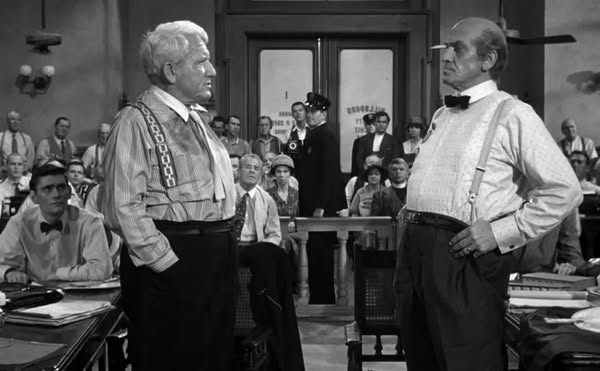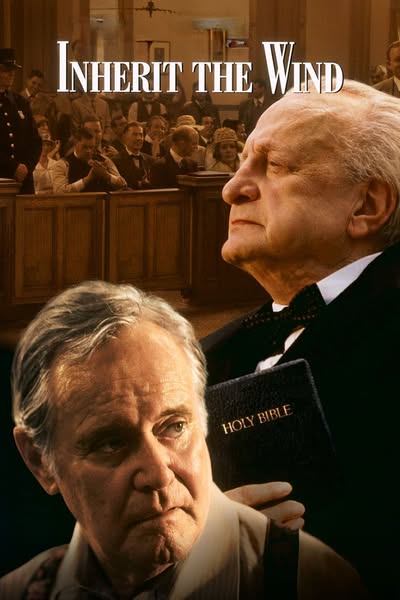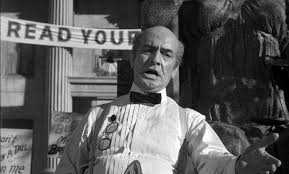Inherit the Wind (1960)

Inherit the Wind (1960) is a powerful courtroom drama that explores themes of freedom of thought, belief, and the clash between science and religion. Directed by Stanley Kramer, the film is loosely based on the real-life Scopes “Monkey” Trial of 1925, where a teacher was prosecuted for teaching evolution in a Tennessee public school. The film presents a fictionalized account of this landmark case, focusing on the broader implications of the conflict.
The story centers on two prominent lawyers: the fervent and charismatic Henry Drummond (Spencer Tracy), who defends the teacher, and the staunchly religious Matthew Harrison Brady (Fredric March), who prosecutes him. The trial becomes a battleground for ideologies, with Drummond advocating for intellectual freedom and the right to question established beliefs, while Brady represents traditional values and the influence of faith.

Tracy delivers a compelling performance as Drummond, embodying the spirit of rational inquiry and humanism. March, too, shines as Brady, portraying a man deeply committed to his convictions, even as they lead him to fanaticism. The film’s dialogue is sharp and thought-provoking, filled with eloquent speeches that challenge viewers to consider the nature of belief and the importance of critical thinking.
The courtroom scenes are intense and dramatic, showcasing the tension between the two opposing sides. Kramer’s direction captures the emotional stakes of the trial, highlighting the personal and societal conflicts at play. The film also features a strong supporting cast, including Gene Kelly as the local reporter, who adds depth to the story by providing a more neutral perspective on the events.

Inherit the Wind not only addresses the specific historical context of the trial but also resonates with contemporary issues regarding education, censorship, and the ongoing debate between science and religion. Its themes remain relevant, prompting discussions about the importance of intellectual freedom and the dangers of dogma.
Visually, the film employs a stark, dramatic style that emphasizes the gravity of the trial. The black-and-white cinematography enhances the tension and underscores the moral dilemmas faced by the characters.

Ultimately, Inherit the Wind is a thought-provoking film that challenges audiences to reflect on their own beliefs and the value of open discourse. With its strong performances, compelling narrative, and enduring themes, it stands as a significant work in American cinema, encouraging viewers to champion the pursuit of knowledge and truth in the face of ignorance and fear.











